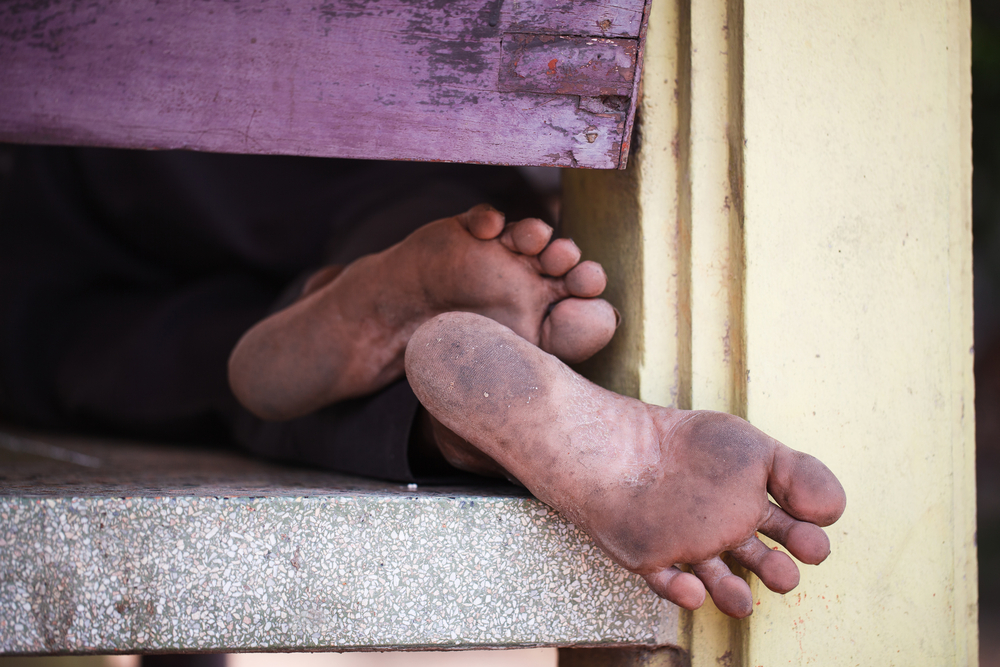For centuries, it’s been a quiet, continuing public health disaster. It doesn’t attract attention by making its victims bleed, or by spreading sexually or by destroying babies’ brains.
But it prepares its victims for lives that are, literally, nasty, brutish and short. It threatens those who escape it by encouraging the spread of other diseases. And while Canada has not experienced the worst of it, child poverty means too many children are suffering.
Its name is “stunting,” and in 2013 about 161 million children under five — the equivalent of five Canadas — were stunted.
And that’s the good news. In 2000, 199 million under-fives were stunted. By 2025, the World Health Organization predicts just 128.6 million will be afflicted.
The World Health Organization defines children’s growth as stunted when they are far shorter than would be expected for their age “as a result of suboptimal health and/or nutritional conditions.”
Stunting afflicts babies and children who don’t get nutritious food in adequate amounts. About 3.1 million of them die of hunger every year. That’s 8,493 every day, or 353 in the hour after you finish this article.
Maybe they’re the lucky ones. Malnutrition weakens children’s immune systems, making them likelier to be sick longer and to die of everything from measles to malaria and diarrhea. UNICEF says that globally, 25 per cent of children under five are stunted, and a million stunted children die, of all causes, every year. Two out of five of them are in South Asia.
Again, that’s the good news: Not long ago, 40 per cent of all the children in the world were stunted.
Stunted children who survive childhood diseases go to school shorter and lighter than their better-fed classmates. They are also mentally stunted, for life. No matter how long they live, they will be less intelligent than the well-fed, less able to understand their world and succeed in it. They form an underclass of workers and soldiers, just barely able to sustain the malnourished, class-ridden societies that produced them.
Stunted girls become stunted mothers. The UN Food and Agriculture Organization says such mothers “are much more likely to have low birth-weight children” — who are likely, if they survive, to grow up stunted and continue the vicious cycle.
The roots of an endless disaster
How did we get into such an endless disaster? Jared Diamond, the author of Guns, Germs, and Steel, famously called agriculture “the worst mistake in the history of the human race.”
As small bands of hunter-gatherers, we lived well and ate well, for relatively little work. A lot of kids might die, but the survivors grew tall and smart, and people rarely fell ill. They were already immune to whatever germs their band carried, and they rarely got close to other bands. As a way of life it lasted for hundreds of thousands of years.
Eventually, though, we got too good at it. Hunting and gathering couldn’t sustain the sheer numbers of successful bands. Encouraging the growth of food plants had probably been a sideline for a long time, but now it became a matter of life or death — a mistake, perhaps, but a necessary one.
Farms, gardens, and domesticated animals could feed more people, but less well. Farming communities had to crowd together in one place, work like hell, catch their animals’ diseases, and feed themselves and their kids on a diet they hadn’t evolved for. The strong and violent took more of that diet and left less to the weak. Stunting has likely been a part of the human condition since the first failed harvest.
Communities also had to grow enough to support non-farming priests to tell them when to sow and when to reap, and warriors to defend them from their hungry neighbours. Economies of scale turned villages into cities and then into empires.
At every step, the underfed majority usually managed to grow enough food to sustain themselves and their masters. And the masters occasionally contrived something that permitted the farmers to produce a few more children who could survive to produce more children. (Ships, for example, got Europeans to the Americas; they returned with corn and potatoes.)
That was precisely what alarmed Thomas Malthus into warning about overpopulation: the poor were breeding unsustainably fast. But Malthus assumed no technological fixes — men would still drive oxen pulling plows to grow grain, forever.
To paraphrase Dr. Sam Johnson, knowing you are to starve in a fortnight powerfully concentrates the mind. Malthus was writing on the eve of an industrial revolution that would pull most stunted farm workers into dark satanic mills, leaving far fewer to feed everyone. Rapid improvements in agriculture kept the mills in business; if some could not be fed, as in the Irish potato famine, a few could at least migrate to the Americas.
Stunting was surely a factor in the continuation of the European class system, creating a class of underfed so-called “white trash” who survive to the present day.
But it has also been a factor in the explosive population growth elsewhere in the world. The scientific and technical advances of the well-fed world trickled down to feed and vaccinate babies in Africa and Asia and Latin America.
The well-fed world felt good to see plump Third World babies grow into maturity; it didn’t feel so good to see angry young Third World men blowing up well-fed tourists or overthrowing post-colonial Third World governments. Feed and educate a generation, and it will expect careers and power as its reward.
Well-fed elites since the pharaohs could always absorb a few bright, obedient boys into the system. But how could they find work for all the well-fed kids, boys and girls, in the Central African Republic? In Nepal, or Paraguay, or Cambodia? No matter how bright and well-fed, none of our 21st century elites have a clue how to prepare for a world where everyone is well fed and well educated.
Needed: physicists, not cannon fodder
But the consequences of poverty and stunting are beginning to inconvenience the elites. No sooner have you launched a mining project in West Africa than some young predator builds an army out of stunted boys and tries to take over. Tomorrow’s superpowers like India and China need more physicists, not more cannon fodder. They certainly don’t need a growing population of illness-prone children.
So the president of the World Bank, Jim Yong Kim, has served notice that he will name and shame governments that let their children starve.
That will take him some time. “We’re essentially lying when 25 per cent of children in the world are stunted,” Kim told the Guardian. “Inequality is baked into the brains of 25 per cent of all children before the age of five. So the only way that we can realistically say there is equality of opportunity is if we bring stunting down to zero.”
When British Columbia’s child poverty rate is 20 per cent, we can’t say we’re that much better than the rest of the world. In the half-witted hope of saving taxpayers’ hard-earned dollars, we’re ensuring that still more of those dollars will be spent on police, courts, welfare, and health care to deal with the results of our misguided thrift.
A poverty-ridden South American country, Peru, has pointed the way for us. Between 2007 and 2014, Peru drove stunting from 29 per cent of its children to 14 per cent. It did so, with World Bank support, by paying female heads of household about a dollar a day. The mothers plowed the support into better food for their kids, and accepted medical care both before and after giving birth.
As a result, their children are thriving and growing taller. Whatever Peru needs to do to prosper at mid-century, it will at least have more smart, healthy young people to call upon than it had before.
Canada can do the same, if it takes more care of the children of Indigenous women and single mothers, and B.C. could point the way.
Or Canada could tell its well-fed, well-educated children, “Some day this will be all be yours — including all the stunted people we couldn’t be bothered to feed because we loved you so much.” ![]()

















Tyee Commenting Guidelines
Comments that violate guidelines risk being deleted, and violations may result in a temporary or permanent user ban. Maintain the spirit of good conversation to stay in the discussion.
*Please note The Tyee is not a forum for spreading misinformation about COVID-19, denying its existence or minimizing its risk to public health.
Do:
Do not: